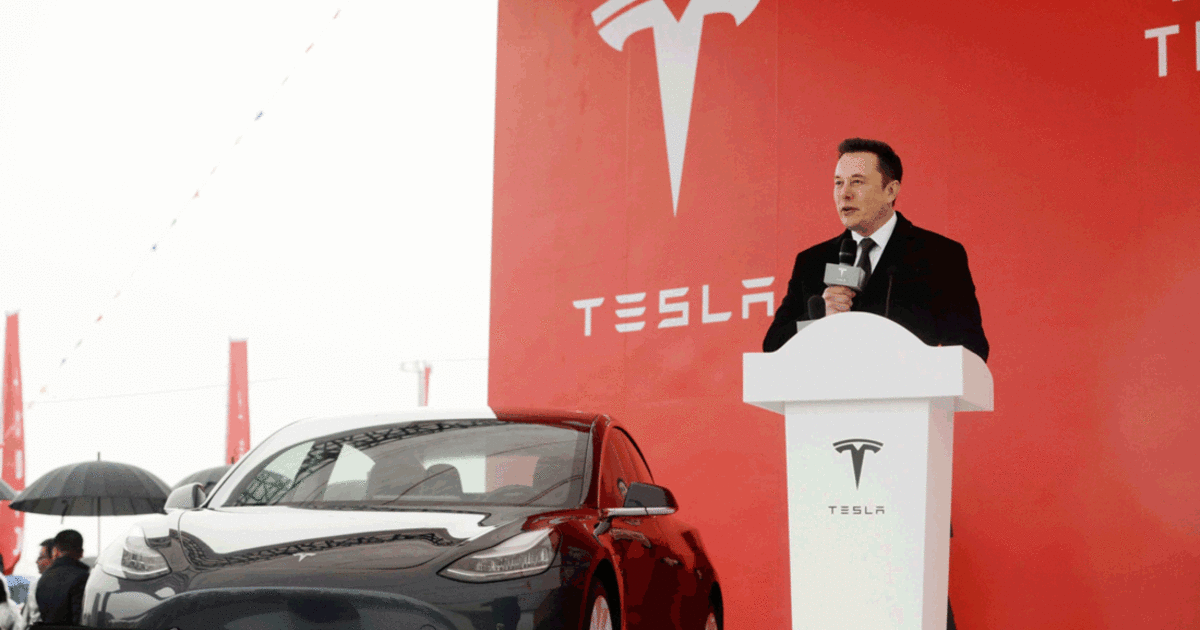
Tesla CEO Elon Musk has lifted the upstart automaker to impressive heights as the top-selling EV brand and industry loyalty leader. But the tech billionaire is undermining that goodwill with his recent dive into electoral politics and divisive social issues as the new owner of Twitter, analysts say.
While Musk has long been quick to defend Tesla and attack the media, his promotion of political candidates in the midterm elections and his tolerance of hateful speech on Twitter is a significant shift that threatens to estrange Tesla owners and alienate car shoppers, according to marketing experts.
“If you think about the halo of Musk and the halo of Tesla, they definitely intersect,” said Mario Natarelli, managing partner at MBLM, an agency that studies brand intimacy, the emotional connection between consumers and companies. “You can’t argue with his success. He’s operating on a different plane than many of us can comprehend.”
But Musk’s swerve into Twitter punditry is weakening the strong emotional bond Tesla has established with its mostly liberal customer base. Although Tesla was the top automaker in MBLM’s 2022 Brand Intimacy Study, its ranking is likely to slip next year as Musk stirs up controversy on a near-daily basis.
“This is creating real damage for the Tesla brand,” Natarelli told Automotive News. “When I see people commenting that they are no longer considering a Tesla car or are embarrassed to drive it, I think that’s reaching the point of significant equity damage for the brand. When we run our study for 2023, we’re going to see that represented.”
To be sure, Tesla’s image has improved in the eyes of Republican voters, but not enough to offset its losses.
In November, polling firm Morning Consult said net favorability of Tesla was down around 20 points among Democrats vs. the previous month, and up around 4 points among Republicans. Liberal California remains Tesla’s biggest market.
“If the Tesla brand becomes increasingly right-leaning, that could put it out of alignment with core electric vehicle purchasing profiles, which lean more liberal,” Morning Consult said.
In the campaign days of early November, Musk urged “independent-minded voters” to vote for Republicans in the midterm elections. He has expressed his preference for Florida Gov. Ron DeSantis for president in 2024 over former President Donald Trump.
Musk recently reinstated Trump’s Twitter account, which was banned after the Capitol riot on Jan. 6, 2021. Musk has also lifted suspensions for more problematic figures, including an editor for the neo-Nazi website Daily Stormer.
He promoted a right-wing conspiracy theory on Twitter just after taking over the company in October, sharing a fake story that Paul Pelosi, the husband of House Speaker Nancy Pelosi, was attacked in his home by a male prostitute. Police said Pelosi was attacked by a stranger. Musk, with 120 million Twitter followers, later deleted the post.
Musk has called himself a “free speech absolutist” who is trying to rebalance political discourse that now leans too far to the left. He has said he is a political moderate and believes Twitter had gone too far banning users on the political right. He has spoken about a left-wing “woke mind virus” that he blames for media censorship.
Tesla no longer has a press office and the company didn’t respond to an email seeking comment.
Musk’s political activism is likely to create polarization around Tesla, since he is so linked to the brand.
“When the richest man in the world behaves in a way that trolls us, you’re suddenly no longer the challenger brand, you’re the bully,” Natarelli said. “You can’t really make sense of it. It isn’t logical, it isn’t a best practice, it’s not going to help the brand on any basis, and it’s a shame.”
At the same time, Natarelli concedes that Tesla’s hardcore fans might see the controversy as overblown. “There’s a lot of ways this could play out and be less significant than it feels at the moment, if you were trying to spin this in a positive way,” he said.
Tesla is starting from an enviable position as MBLM’s most engaging auto brand, beating out legacy rivals like Mercedes-Benz and Porsche.
MBLM used artificial intelligence to examine more than 600 brands and 1.4 billion words on social media platforms for its brand intimacy scoring across multiple industries. Disney was first, Tesla was second and Apple was third.
“For the 12 years that we’ve been doing this, Tesla was never in our study because it never had enough scale until this year,” Natarelli said. “And it rocketed into the findings at No. 2, which is amazing for a new car brand.”
Tesla was seen by consumers in the MBLM study as technically superior to other auto brands, with a mission of promoting a cleaner, healthier planet. “Its technological advances are well-known and it’s hip and cool, aligned with sustainability and sleek design,” the study said.
The company also scored at the top in more traditional brand loyalty studies, including one by S&P Global Mobility. Tesla took first place in the luxury category while Ford was tops in the mainstream category, S&P Global said in September.
And Tesla continues to dominate U.S. sales — both for EVs and for luxury vehicles, regardless of fuel type. Tesla garnered 65 percent of the EV market, according to new-vehicle registration data from Experian through October of this year.
But the company faces a slew of new competition, making Musk’s Twitter antics even more difficult for the brand.
“The space between Tesla and its competitors has shrunk,” Natarelli said. “The last thing you need is [Musk] making it harder.”